Search Results
Showing results 1 to 20 of 36

Seed Dispersal
Source Institutions
In this outdoor activity and bingo-like game, learners explore why and how seeds spread far from the plants that produce them.

Formulas Poker
Source Institutions
In this adapted version of poker, learners practice writing chemical formulas by playing this chemistry card game.

Metamorphosis Matching
Source Institutions
This is an activity where learners will compare the different metamorphosis stages of amphibians.

Smart Domino Tricks
Source Institutions
In this activity, you take regular dominoes, and turn them into conductive switches that can turn on a LEGO RCX block or Pico Cricket (micro controller). LEGO RCX block or Pico Cricket is required.
Coincidental Colonization
Source Institutions
In this game of chance, learners will discover how organisms colonized the Galápagos Islands, experiencing how chance plays a role in the successful dispersal of species to new areas.

Games from Around the World
Source Institutions
This lesson (on pages 46-55 of PDF) features two strategy board games -- one from Ghana and one from China. The first game, Achi, is a cross between checkers and tic-tac-toe.
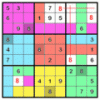
Color Sudoku
Source Institutions
The popular sudoku puzzles use numbers, but the game could played with any set of 9 different objects!

Envirolopes
Source Institutions
In this outdoor activity and observation game, learners hunt for a variety of textures, colors, odors and evidence of organisms in the activity site.
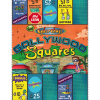
Gollywood Squares Game
Source Institutions
In this Cyberchase activity, roll the die and count off spaces on the game board to earn money and collect CyberSquad autographs. To win the game, be the first to buy four different autographs.

You Can't Take It With You
Source Institutions
This activity models the necessary balance of creating power and cleaning up its associated waste. Learners participate in a game where they attempt to move forward toward a goal.
Shape & Solid Exploration
Source Institutions
In this game, learners use clues to identify mystery shapes. Use everyday objects (like from the pantry) as the shapes.

The Menu Game at the Terribly Terrific Taco
Source Institutions
In this math game (Page 15 of the Dining Out! PDF), learners figure discounts and/or profit increases for various food totals. Learners add decimals to $100.

Over the Hill
Source Institutions
In this physics activity, learners construct a small-scale version of a classic carnival game.
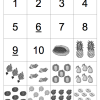
Memory Match
Source Institutions
In this classic memory game (on pages 37-45 of PDF), learners turn over tiles to reveal images on the back.

Go Bug!
Source Institutions
By playing a card game similar to "Go Fish," but based on the stages of metamorphosis, learners will be able to see how insects change in form as they grow and will consider the advantages of undergoi

Sustainable Fishing
Source Institutions
In this activity, learners use a model for how fishing affects marine life populations, and will construct explanations for one of the reasons why fish populations are declining.
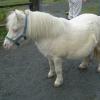
Wild or Domestic Animal Game
Source Institutions
In this quick activity (page 2 of PDF), learners will play a game using their observation and listening skills, interpreting clues from each other to deduce their secret animal identity.
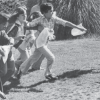
Population Game
Source Institutions
In this outdoor game, learners simulate a herd of deer trying to survive in an area called the "home range." Learners explore the concept of "carrying capacity"—what size population of an organism can

Traits Bingo
Source Institutions
In this game, learners cross off or color bingo squares in response to questions about their traits.
Fish Family Identification
Source Institutions
In this game, students will become familiar with fish shapes, learn that fish within a given taxonomic family have similar body shapes, and discuss how different body shapes enable fish to survive in
